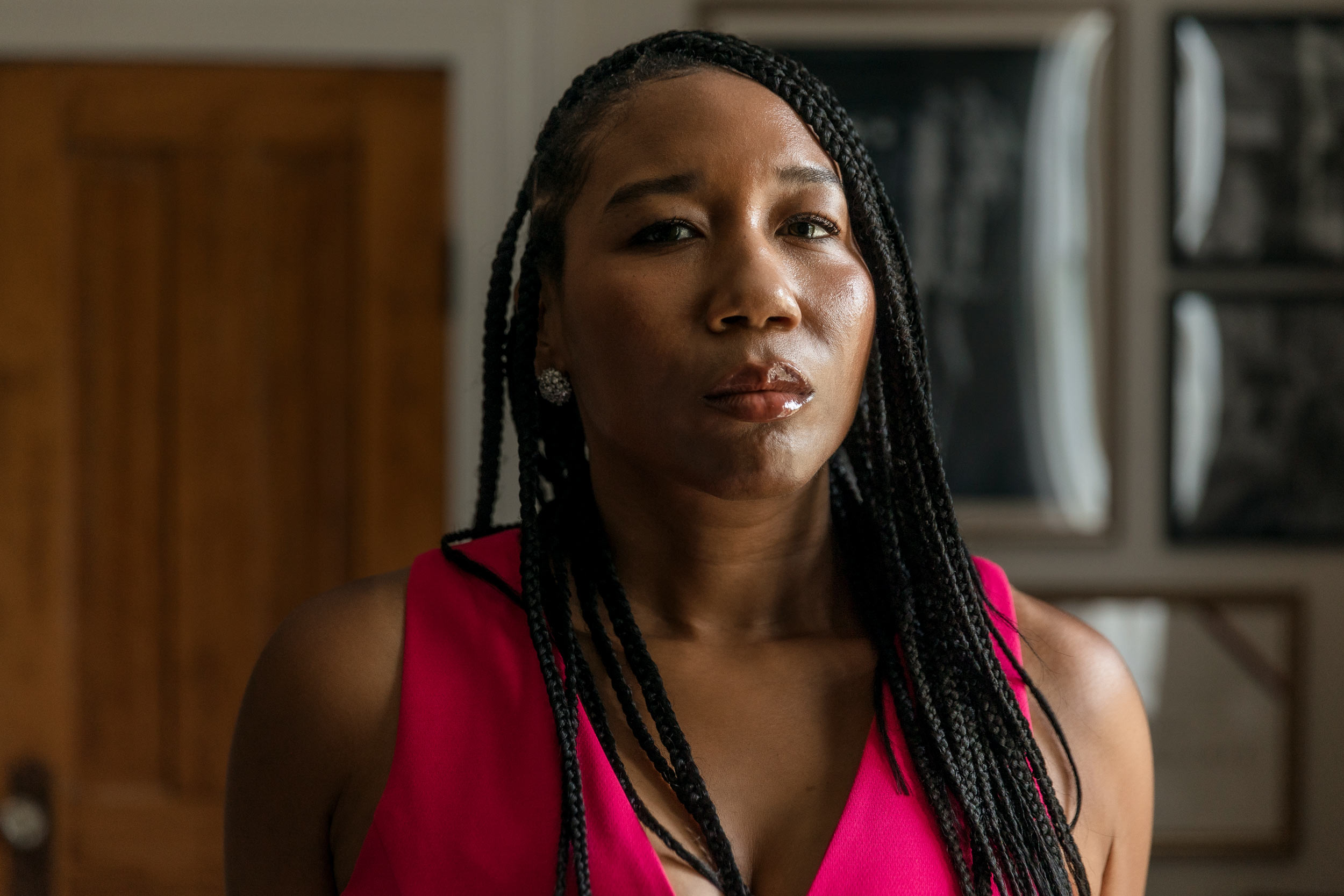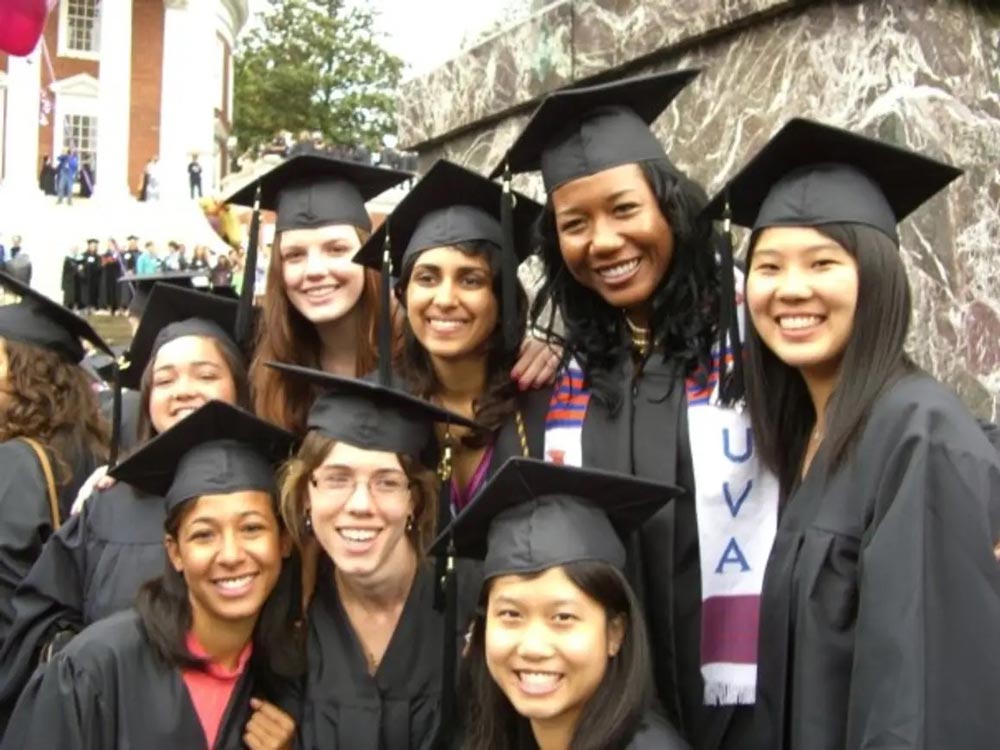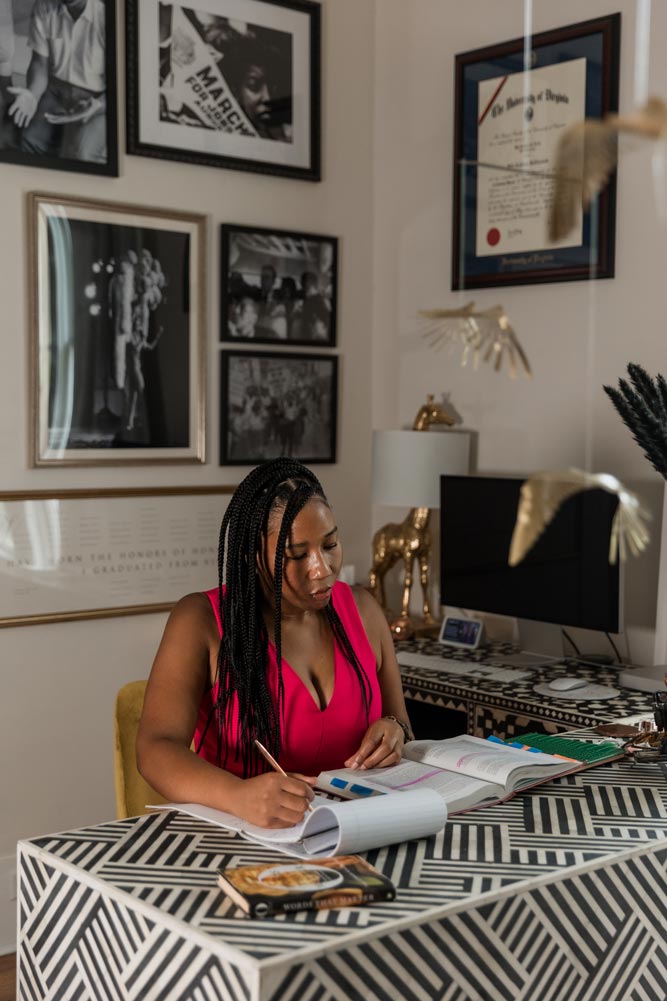A Preacher’s Nudge
At Harvard, she was diagnosed with multiple sclerosis two days before her first year’s final exams. Still, she graduated and landed a job at a corporate law firm in the nation’s capital. But while sitting for the bar exam, she had a relapse. The disease, mostly concentrated in her brain, flared. She failed.
The Washington firm? “They fired me.”
She retreated to her Mississippi family home to regroup. Two months later, her father died. She stayed to help her mother.
One day in church, the preacher started talking about “moving into your purpose.”
“I was like, ‘That preacher is talking to me right now,’” she recalled. “I had always known I was supposed to be a civil and human rights attorney.
“God took away everything else so I couldn’t do anything else,” she said.
Fast forward a bit and Jefferson, an attorney after passing the bar on a subsequent try, was in the back seat of a police car, arrested by the same Mississippi officers she was investigating. Her crusading story of pursuing corrupt, racist, small-town Southern police departments was detailed in the Washington Post, bringing national attention to her legal nonprofit, a project she conjured because of her time at UVA.
‘A Good University in Virginia’
Like a lot of her high school classmates, Jefferson figured she’d attend the University of Mississippi, or maybe a community college. Her sister-in-law had heard about “a good university in Virginia,” but didn’t know much else. Jefferson, sensing a chance to broaden her horizon, guessed it might be called “the University of Virginia,” and a Google search confirmed. She saw Grounds for the first time at orientation.
“UVA ended up being an amazing experience that completely changed my life,” she said.
There she met Julian Bond, the civil rights champion who taught history courses on Grounds from 1992 to 2012. Bond’s course was full, but Jefferson asked if she could squeeze in. Bond put it to a class vote. The students approved, and Bond became her mentor, a relationship that lasted long after she left Grounds. Weekly for 10 years, she and Bond spent time together, “strategizing about civil rights.” Her purpose, Bond told her, was “to be a disciple for civil rights.”
“He taught me everything I know about civil and human rights,” she said. “I asked him to write my letter of recommendation for law school.”
At Harvard, and with student loans to pay, the idea of civil rights work lost a little luster. The work would be hard and the pay underwhelming.
“I did run from it because I didn’t want to struggle,” she said. “I knew that I would be broke and it wouldn’t be fun.”
But after the sermon, and with no other options, she began building a legal nonprofit. She named it “JULIAN,” after her mentor.
“Our goal is to stand up for the voiceless,” she said. “We want to end caste in our lifetime in America. By that, we mean race-based, gender-based, sexual-orientation-based and differently abled caste in America.”
Where Nobody Is Looking
And that’s how she ended up arrested in Lexington, Mississippi. She had worked with citizens to gather evidence that, she says, shows the police department singled out Black residents for mistreatment. She was videotaping a traffic stop of a Black motorist, a disproportionately common scenario, she says, when officers took umbrage and arrested her. After her release from jail, she says an officer told her Lexington police had been plotting her arrest because of her work targeting the department.
A judge convicted her of failure to comply and resisting arrest, among other charges. The case drew press attention and then, inexplicably, the court vacated the convictions.
Jefferson lobbied Justice Department officials, imploring them to examine the evidence she’d gathered against the Lexington Police Department. The Justice Department launched an investigation.
“Most of the people who come to us don’t have anywhere else to go,” she said. “We specifically work in places where things are really hard, like the small towns, the rural areas where there is no oversight, the places in America where nobody else is looking.”
Bond, her mentor, died in 2015, before he could see what his student accomplished in his name. Jefferson hopes Bond would have been proud.
“His wife tells me that he would be,” Jefferson said. “And I would like to think he would be. I hope he would be.”


.jpg)










